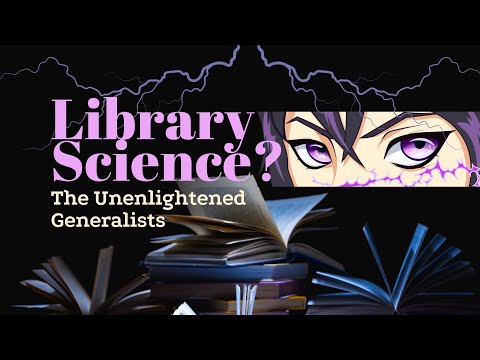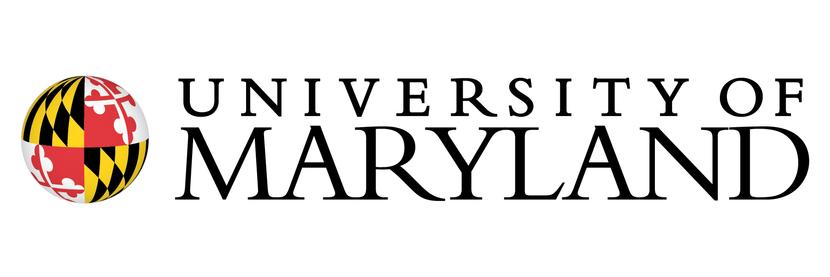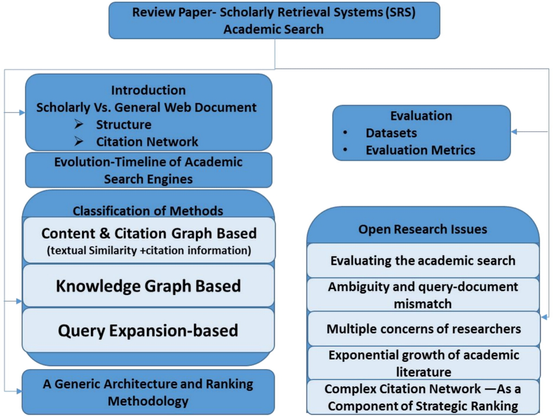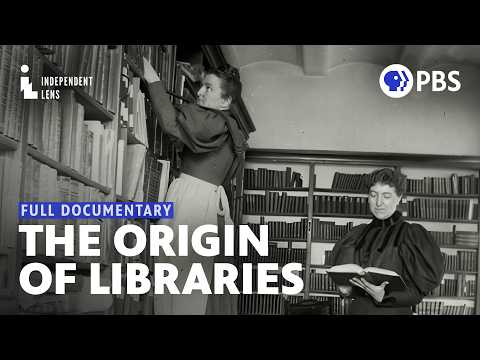Should You Get an MLIS? A First‑Gen Perspective
In this honest reflection, I share what I gained from my MLIS in library and information science—from personal knowledge management to identity transformation.

Should You Get an MLIS? A First‑Gen Perspective
In this honest reflection, I share what I gained from my MLIS in library and information science—from personal knowledge management to identity transformation.

Cool job at University of Maryland working on metadata for Indigenous Archival Search
https://umd.wd1.myworkdayjobs.com/en-US/UMCP/details/Metadata-Specialist_JR101772?q=metadata
#Libraries #Academia #GetFediHired #Indigenous #LibraryScience

Job Description Summary & Additional Information Transforming Indigenous Archival Search, a collaborative Mellon-funded project, seeks a Metadata Specialist to liaise with national and international standards groups, develop and implement metadata workflows, and augment Tribal staff as metadata specialist to improve pan-institutional visibility and searchability of Indigenous records, including implementing culturally-appropriate technical solutions in the SNAC platform, and associated documentation. Position is FULLY grant funded for three (3) years. Continuation of position will be dependent upon Grant Funds availability. Candidates who have Native or Indigenous backgrounds are especially encouraged to apply. Preferences: ● MLS or advanced degree in a related field of information management or equivalent work experience. ● Professional experience with technology-focused metadata projects, scripting, and data manipulation. ● Demonstrated success working collaboratively in project teams with multiple levels of staff, colleagues, and community constituencies. ● Knowledge of XML schema, XSLT stylesheets, metadata cross-walks, and principles for designing and/or adapting existing work from related domains. ● Knowledge of archival and library metadata standards (descriptive, technical, structural) (e.g., EAC-CPF, EAD, MARC, MARCXML, METS, MODS, FCGD, CCO, Dublin Core, VRA). ● Familiarity with ontology development and structured data standards, such as controlled vocabularies and thesauri. ● Experience with analyzing, creating, and documenting procedures such as service standards, policies, procedures and workflows. Additional Desired Qualifications ● Experience using or architecting APIs. ● Conceptual knowledge of programming, data manipulation and transformation tools, technologies and methodologies (e.g., Python, Ruby, JavaScript, OpenRefine). ● Experience working with archival collections or knowledge of archival repository functions, services, and requirements. ● Experience working with Native and Indigenous (or other BIPOC) communities. ● Demonstrated commitment to openness, diversity, inclusion, innovation, and social justice. ● Working knowledge of metadata application profiles, RDF triple-stores, SPARQL queries, JSON-LD, IIIF, linked data, BIBFRAME, and/or the Web Annotation standard. ● Familiarity with core university digital systems and platforms such as Google Suite and Zoom. Required Application Materials: Detailed Resume or and Cover Letter describing your community and metadata work experience. Best Consideration Date: N/A Posting Close Date: August 15, 2025 Open Until Filled: No Minimum Qualifications Education: Bachelor’s degree from an accredited college or university. Experience: Three (3) years of experience in an academic or research library in bibliographic database management or copy cataloging. Other: Additional work experience as defined above may be substituted on a year for year basis for up to four (4) years of the required education. Knowledge of bibliographic records in integrated library systems. Knowledge of bibliographic database management and copy cataloging. Skill in oral and written communication. Skill in the use of Microsoft Office products. Ability to interpret and apply policies, procedures, regulations, and laws. Ability to multitask while demonstrating a commitment to customer service and sensitivity to a culturally and ethnically diverse community. Job Risks Not Applicable to This Position Department INFO-College of Information Studies Worker Sub-Type Staff Contractual (C2) (Fixed Term) Salary Range $75,000 - $75,000 Benefits Summary For more information on Staff Contractual CII benefits, select this link . Background Checks Offers of employment are contingent on completion of a background check. Information reported by the background check will not automatically disqualify anyone from employment. Before any adverse decision, the finalist will have an opportunity to provide information to the University regarding disclosable background check information. The University reserves the right to rescind the offer of employment or otherwise decline or terminate employment if the information reported by the background check is deemed incompatible with the position, regardless of when the background check is completed. Employment Eligibility The successful candidate must complete employment eligibility verification (on Form I-9) by presenting documents that establish identity and work authorization within the timeframe required by federal immigration law, and where applicable, to demonstrate renewed employment authorization. Failure to complete employment eligibility verification or reverification within the timeframe set forth by law may result in suspension or termination of employment. EEO Statement The University of Maryland, College Park is an Equal Opportunity Employer. All qualified applicants will receive equal consideration for employment. Please read the University’s Equal Employment Opportunity Statement of Policy. Title IX Non-Discrimination Notice Resources Learn how military skills translate to civilian opportunities with O*Net Online Search Firm Managed Recruitment There are some positions that are not advertised on this career site as the search is being managed by a Search Firm. Please visit the link below to see these available opportunities: Search Firm Managed Vacancies The University of Maryland, College Park is the state's flagship university and one of the nation's preeminent public research universities. A global leader in research, entrepreneurship and innovation, the university is home to more than 40,700 students, 14,000 faculty and staff, and 388,000 alumni all dedicated to the pursuit of Fearless Ideas. Located just outside Washington, D.C., we discover and share new knowledge every day through our renowned research enterprise and programs in academics, the arts and athletics. And we are committed to social entrepreneurship as the nation’s first “Do Good” campus. EEO Statement The University of Maryland, College Park is an Equal Opportunity Employer. All qualified applicants will receive equal consideration for employment. Please read the University’s Equal Employment Opportunity Statement of Policy. Title IX Non-Discrimination Notice Resources Learn how military skills translate to civilian opportunities with O*Net Online The University works hard to make its websites accessible to any and all users. If you need assistance completing the application process, please contact us at one of the below options: Email: jobs@umd.edu Phone: 301.405.7575 Maryland Relay: Dial 711 This contact information cannot be used to inquire about application status. There are some positions that are not advertised on this career site as the search is being managed by a Search Firm. Please visit the link below to see these available opportunities: Search Firm Managed Opportunities

Люди заходили в библиотеки с фальшивыми паспортами, заказывали редкие издания и подменяли их копиями. Книги исчезали из фондов, а спустя месяцы предположительно оказывались на торгах в Москве. Самая масштабная книжная кража в Европе со времен Второй мировой.
Should You Get an MLIS? A First‑Gen Perspective
In this honest reflection, I share what I gained from my MLIS in library and information science—from personal knowledge management to identity transformation.

Should You Get an MLIS? A First‑Gen Perspective
In this honest reflection, I share what I gained from my MLIS in library and information science—from personal knowledge management to identity transformation.

Emotional labor in libraries
#Conflict #Education #HigherEducation #Learning #Librarians #Librarianship #Libraries #LibraryScience #LowMorale #MentalHealth #Students #Teaching #ToxicWorkplaces #Well-Being
How do we know how much we know-- and what?
"Over the past decades, several methods have been proposed to ease the laborious task of searching for relevant papers. Various books and review articles summarize these methodologies, findings, and implications. However, they often fail to provide a detailed retrospective of recent advances, including their evolution, current state, and challenges. This article addresses that gap by reviewing the most relevant and authoritative literature on advances in academic search systems. It proposes a generic layered architecture of scholarly retrieval systems and provides a detailed analysis of ranking methodologies, datasets, and evaluation methods. Additionally, it identifies critical open research challenges and issues, offering a promising foundation for future research and development in this vital field."
#AcademicSearch
#ScholarlyRetrieval
#LIbraryScience
https://link.springer.com/article/10.1007/s13278-025-01476-1

Most countries today emphasize scientific research and invest heavily in it. As a result, the number of scholarly documents has increased dramatically. Both academics and industry professionals seek to retrieve relevant papers efficiently. However, identifying relevant documents on a given topic using current academic search systems is challenging. The reasons include the exponential growth of research publications, ambiguity and limitations in searchers’ keywords, and the complexity of citation networks. Over the past decades, several methods have been proposed to ease the laborious task of searching for relevant papers. Various books and review articles summarize these methodologies, findings, and implications. However, they often fail to provide a detailed retrospective of recent advances, including their evolution, current state, and challenges. This article addresses that gap by reviewing the most relevant and authoritative literature on advances in academic search systems. It proposes a generic layered architecture of scholarly retrieval systems and provides a detailed analysis of ranking methodologies, datasets, and evaluation methods. Additionally, it identifies critical open research challenges and issues, offering a promising foundation for future research and development in this vital field.
🤯 This week! Join Apereo Foundation for our July Micro Conference
July 9th at 11 am Eastern
Free and Online
📚 Florida Atlantic University staff will share their insights on creating a more #open community within the library system.
#FOSS #openaccess #highered #LibraryScience
https://apereo.civicrm.org/civicrm/event/info?id=316&reset=1
Anmeldung ab jetzt möglich!
Ankommen in der Bibliotheksarbeit in Deutschland - Brückenkurs für Menschen mit ausländischem Bibliotheksabschluss, die in deutschen Bibliotheken arbeiten möchten.
📅 24.09.-01.10.2025
👉 Weitere Infos: https://hu.berlin/brueckenkurs-bibliotheksarbeit
------
For library professionals who’ve immigrated/fled to Germany: a free online course to prepare you for job applications!
📅 24 Sep to 01 Oct, 2025
👉 More info in several languages: https://hu.berlin/brueckenkurs-bibliotheksarbeit
